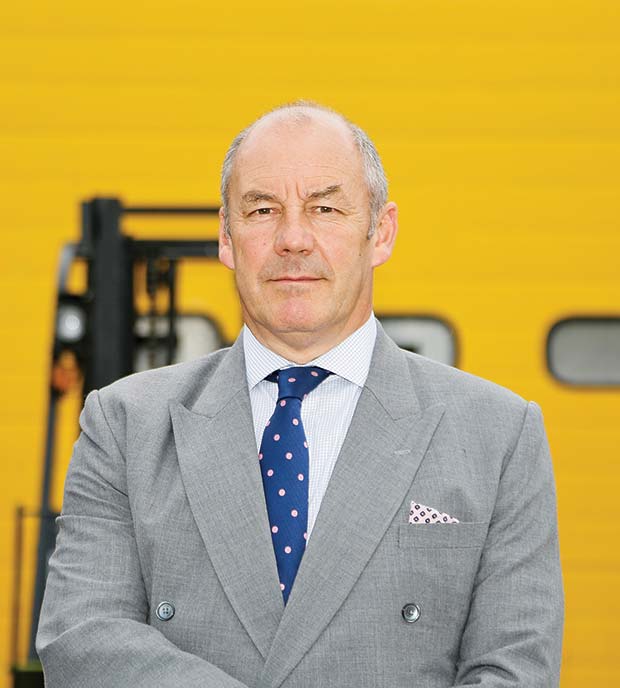FLTA Chief Executive Peter Harvey MBE explains how we – collectively – can make significant and lasting change for every business that relies on fork lift trucks.

Technology moves at lightning speed, particularly in warehousing, logistics and transport. Automation has gained a lot of traction in recent years, thanks to its big benefits: slashing wage, energy and training costs while optimising space.
Most importantly, it virtually eliminates humans from the workspace, meaning it could prevent the vast majority of accidents in some workplaces.
However, for many SMEs automation is neither practical or affordable… leaving us with a big problem.
Despite having Europe’s most stringent health and safety legislation, the number of serious FLT accidents in the UK (1300 per annum) is rising…and most of those victims are those working alongside trucks.
Clearly, we need to take action. While great strides have been made to make conventional materials handling equipment safer, the majority of accidents (and resulting injuries) aren’t the result of technical error… but human fallibility.
The repetitive nature of fork lift truck operations can let bad habits creep in – even in the best-trained and most safety conscious organisations – if they’re left unchecked.
Motivation and training are key to engaging staff and reducing injuries, particularly with new starters. During the first month of employment, any worker (new or temporary) is four times more likely to be involved in an accident.
Competent management is also vital. Yet too few managers have had any formal training. The UK’s largest FLT training organisation reports that 9 out of 10 attending its management courses were completely unaware of their legal responsibilities.
And that could cost them personally. In the past year, there’s been a threefold increase in HSE prosecutions of company directors and senior managers – resulting in significant fines and prison sentences.
While not all incidents end up with a court appearance (or injury), there are costs associated with bad practice. Those everyday knocks and scrapes damage your trucks, your stock and your racking… as well as hit productivity with time lost to cleaning up, restocking and recycling.
While automation is the future, right now the majority of SMEs are running small fork lift fleets in real world situations.
So we need to take ownership. It’s up to each of us to look ourselves in the mirror every morning and ask: “How can I make a difference today?” The Fork Lift Truck Association is the UK’s independent authority on fork lift trucks.
FORK LIFT TRUCK ASSOCIATION
Tel: 01635 277577




Comments are closed.